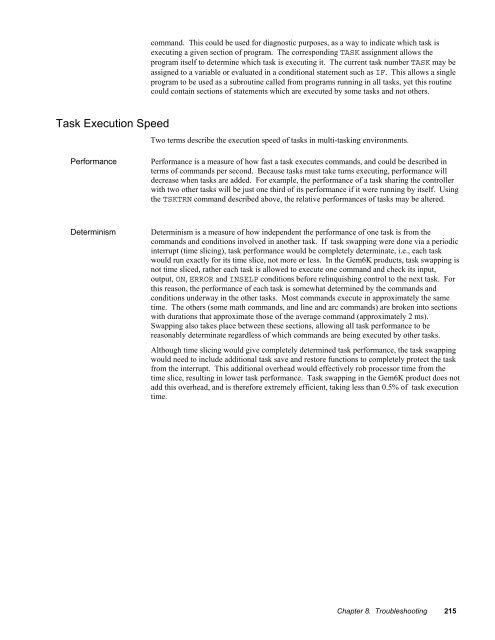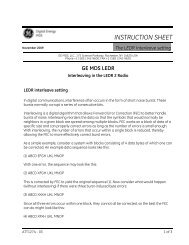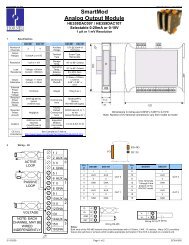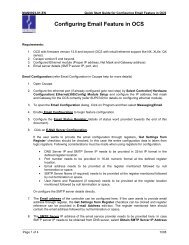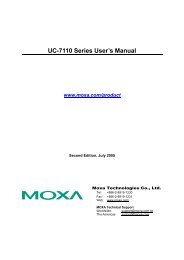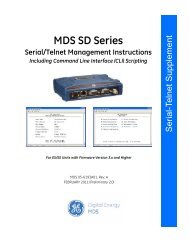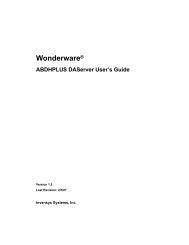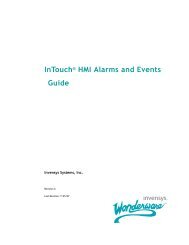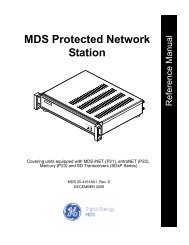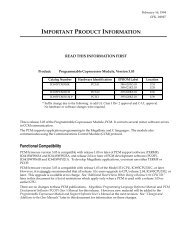Gemini GV6K and Gemini GT6K Programmer's Guide
Gemini GV6K and Gemini GT6K Programmer's Guide
Gemini GV6K and Gemini GT6K Programmer's Guide
Create successful ePaper yourself
Turn your PDF publications into a flip-book with our unique Google optimized e-Paper software.
comm<strong>and</strong>. This could be used for diagnostic purposes, as a way to indicate which task is<br />
executing a given section of program. The corresponding TASK assignment allows the<br />
program itself to determine which task is executing it. The current task number TASK may be<br />
assigned to a variable or evaluated in a conditional statement such as IF. This allows a single<br />
program to be used as a subroutine called from programs running in all tasks, yet this routine<br />
could contain sections of statements which are executed by some tasks <strong>and</strong> not others.<br />
Task Execution Speed<br />
Two terms describe the execution speed of tasks in multi-tasking environments.<br />
Performance<br />
Performance is a measure of how fast a task executes comm<strong>and</strong>s, <strong>and</strong> could be described in<br />
terms of comm<strong>and</strong>s per second. Because tasks must take turns executing, performance will<br />
decrease when tasks are added. For example, the performance of a task sharing the controller<br />
with two other tasks will be just one third of its performance if it were running by itself. Using<br />
the TSKTRN comm<strong>and</strong> described above, the relative performances of tasks may be altered.<br />
Determinism<br />
Determinism is a measure of how independent the performance of one task is from the<br />
comm<strong>and</strong>s <strong>and</strong> conditions involved in another task. If task swapping were done via a periodic<br />
interrupt (time slicing), task performance would be completely determinate, i.e., each task<br />
would run exactly for its time slice, not more or less. In the Gem6K products, task swapping is<br />
not time sliced, rather each task is allowed to execute one comm<strong>and</strong> <strong>and</strong> check its input,<br />
output, ON, ERROR <strong>and</strong> INSELP conditions before relinquishing control to the next task. For<br />
this reason, the performance of each task is somewhat determined by the comm<strong>and</strong>s <strong>and</strong><br />
conditions underway in the other tasks. Most comm<strong>and</strong>s execute in approximately the same<br />
time. The others (some math comm<strong>and</strong>s, <strong>and</strong> line <strong>and</strong> arc comm<strong>and</strong>s) are broken into sections<br />
with durations that approximate those of the average comm<strong>and</strong> (approximately 2 ms).<br />
Swapping also takes place between these sections, allowing all task performance to be<br />
reasonably determinate regardless of which comm<strong>and</strong>s are being executed by other tasks.<br />
Although time slicing would give completely determined task performance, the task swapping<br />
would need to include additional task save <strong>and</strong> restore functions to completely protect the task<br />
from the interrupt. This additional overhead would effectively rob processor time from the<br />
time slice, resulting in lower task performance. Task swapping in the Gem6K product does not<br />
add this overhead, <strong>and</strong> is therefore extremely efficient, taking less than 0.5% of task execution<br />
time.<br />
Chapter 8. Troubleshooting 215


